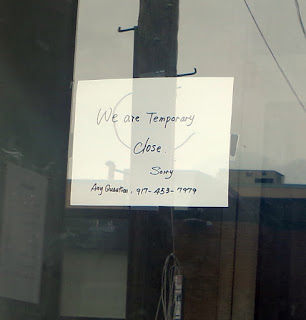What a difference a few weeks make. Once upon a time we were
in the midst of a deadly pandemic and Hollywood celebrities were self-righteously imploring one and all to stay home and, of course, wear masks and practice
social distancing. We were doing it for Grandma—keeping her safe first and
foremost—they said. These cloying public-service announcements made me think of Mrs.
Margaret Mann and her little Depression-era grocery store. Even though she’s
been dead for sixty-nine years, I continue to wear a mask for her. Fast-forward
to the present and the very same celebs in many instances—from their
multi-million dollar homes in gated communities—don’t seem all that concerned
about Grandma anymore, despite the fact that COVID-19 is alive and well.
I see actress Natalie Portman had her woke bona
fides stamped recently when she fell on her white-privilege sword and came out
in support of de-funding police. I’m certain she arrived at that position after
doing copious, painstaking research on the subject. This made me think of a
Depression-era policeman named Edgar Kennedy. He’d be out of a job. Officer
Kennedy may have been on the bumbling side, but he was a good cop at heart. And so was Officer Joe Bolton for that matter.
On the matter of police de-funding: Perhaps we should take a
page from the Old West or Mayberry, even, and have each American town hire its
own sheriff and deputy to oversee a one- or two-cell jail. You know: the kind
with a solitary rectangular window with bars, which allowed in fresh air and flies. This would save a lot of money and hopefully appease
Natalie Portman with her $60 million. Those charged with alleged crimes could
wait for a circuit judge to arrive and stand trial before his or her peers.
More savings.
If you’re not paying attention, maybe you should be. The
woke folk will get you if don’t watch out. I sang that today like Darla Hood once sung “The Love Bug will get you if you don’t watch out.” Why? I just saw a news
story that a police presence was in Manhattan’s Columbus Circle guarding the
statue of Christopher Columbus there. I hope the NYPD dispatched some officers
to the Port Authority to protect its statue of Ralph Kramden, who wasn’t
especially woke. Bang…zoom!
From essayists Samuel Johnson to Ralph Waldo Emerson to
James Baldwin to Christopher Hitchens to…George Clooney—star of The
Facts of Life after the show had Jumped the Shark. If I am to
believe the Yahoo news headlines, it seems that Hollywood is now in the
business of lecturing and “taking down” people. This is especially true of late-night
comedians like one-trick ponies Colbert, Kimmel, and Oliver. The good old days of
Johnny Carson seem like such a long, long time ago.
I first registered to vote in 1981 as a Republican. My
college years turned that upside down and I graduated a lip-service leftie. The
faculty was comprised predominantly of men and women on the left, but there was
no frothing-at-the-mouth conformity of thought like there is today on campuses. I had great respect for many of my professors whose lives took them
to places and found them in circumstances completely foreign to most
contemporary academia nuts, who can’t abide their students thinking for
themselves for fear they might see a world with more nuance than their rigid one-world.
A favorite college course of mine was “Great Issues in
American History.” I actually looked forward to attending it, which is saying
something. A liberal-minded professor and product of the 1960s Civil Rights and
anti-Vietnam War movements taught it. He presented the facts absent an ideological bent and encouraged
discussion and debate. I recall one lecture touching on the Civil War and
slavery. I don’t remember the particulars of what inspired it, but a classmate said
at one point, “I don’t think you can compare slavery to the Holocaust.” His
opinion made an African-American peer visibly angry and a heated but civil
discussion ensued. That’s what a college education used to be about:
differences of opinion freely aired—more speech, not less.
The wokies are particularly emboldened now. Pay
absolute total obeisance to them or they might be coming for your job or that
statue of St. Francis of Assisi—he must have said something or done something un-woke
in 1200—on your front lawn. Forgive me, though, for still thinking of Grandma and still wanting to help.





















































